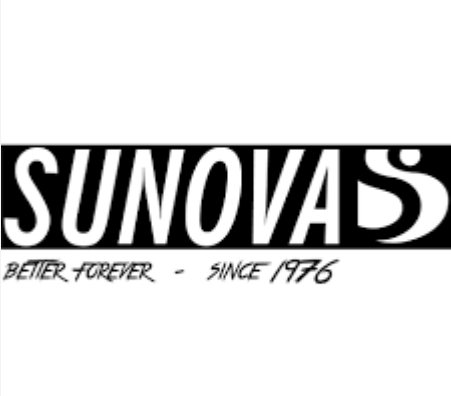Description
9’6 Sunova Tanker C2TR3Tec Standard – Futures – 2 + 1 – Black Line
THE TANKER is the ultimate behemoth.
A nose perfect to hang up the front, with a more traditional square tail. Add some serious beef, flatten the rocker, and you get a board that does not stop until you hit the sand.
If nose riding and walking the entire board is your style and you want to milk every last drop from a wave, then the Tanker has you covered.
| Dimensions | Volume |
| 9’6 x 23 9/16” x 3 1/8” | 75.4 ltr |
| 10’0 x 24 5/8 x 3 3/8” | 89.5 ltr |
- OUTLINE: SQUARE NOSE, PARALLEL OUTLINE, ROUNDED SQUARE
- BOTTOM: FLAT BOTTOM
- ROCKER: FLATTER THAN MEDIUM
- RAILS: FULL
- FINS: 2+1 (not included)
- GOAL: THE ULTIMATE WAVE CATCHING SMALL WAVE BOARD
- WAVE: KNEE TO HEAD HIGH
- RIDER: NOVICE TO PRO
ABOUT THE BOARD
GENERAL GOAL | THEME OF THE BOARD
The ultimate behemoth small wave groveler.
CONDITIONS IT’S WORKING BEST
Super small micro waves. From knee to head high.
MANEUVERS IT DOES BEST
Nose riding and wave catching.
SKILL LEVEL IT’S BEST FOR
Novice to Pro.
PADDLE POWER
Exceptional.
WHAT YOU THOUGHT OF WHEN YOU DESIGNED IT?
I was looking for a board with the best wave catching ability and stability while nose riding on really small waves. Something that had the ability to knee paddle and had loads of glide on soft open faces.
WHAT IT POSSIBLY COMPROMISES ON THEN?
Length and flatness mean it doesn’t like to go top to bottom or fit in the pocket.
SHAPE DETAILS SUMMARY | DESIGN INFO
OUTLINE
Square nose, parallel outline, rounded square. This board has serious paddle power, the square nose climbs on top of the water at the lowest speeds. The parallel outline really wants to run a clean straight line along the face so it feels like a solid platform when walking and noseriding. The square tail wants to draw longer lines, so the board maintains maximum drive in even the softest conditions.
RAILS
Full. We talk a lot about low rails for ease of turning, but in the Tankers case, it’s not about turning, it’s about glide while maintaining down the line speed. The fuller rail and softer bottom edge help the water wrap the rail and give it a nice locked in feeling.
ROCKER
Flatter than medium. Again, it’s all about the cruise factor. This rocker being flatter, lets you ride ripples so you can virtually dock on the beach, providing there is enough water for your fin.
BOTTOM
Flat bottom. Maximum go.
DECK
Flatter. Because the rails are fuller it automatically creates a flatter deck, this squeezes in maximum volume for the board’s size.
FINS (not included)
2+1. The larger center fin creates a more stable platform to walk on and also holds a cleaner more direct line while nose riding. As you walk, the board has a tendency to rock a little rail to rail if you’re not walking the center perfectly and lightly. The deeper fin resists this rocky wobbly feeling and keeps the board flat and stable.
FINAL STATEMENT
The ultimate wave catching small wave board.










